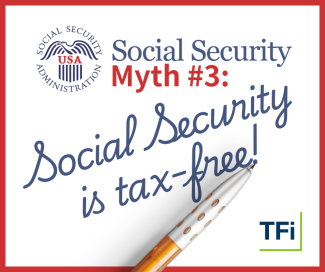
Social Security Solvency: 7 Common Myths
Social Security isn’t just a paycheck in retirement—it’s the backbone of financial security for millions of Americans. Yet, for all its importance, Social Security is shrouded in myths that can leave you second-guessing your options.
Social Security myths are everywhere, from rumors of its collapse to misunderstandings about who gets what. As the 2025 social security increase starts, let’s clear up the misconceptions once and for all.
Check out this “Social Security for dummies” myth-busting list to make more confident, informed decisions about your benefits:
Myth #1: Social Security Is Going Broke
You’ve heard the doomsday talk, right? That Social Security’s running out of cash, leaving future generations in the lurch. But the truth is more nuanced. Social Security runs on a “pay-as-you-go” model, funded primarily by payroll taxes. While there is a projected shortfall down the line, the system isn’t going bankrupt; instead, benefits may need adjustments unless Congress steps in, as it did in 1983. In other words, Social Security won’t disappear overnight—it just might evolve.
Myth #2: Claim Early to Get the Most Money
It seems intuitive: grab your benefits as soon as you are eligible to receive benefits. But beware of the break even point for Social Security benefits. Claiming before your full retirement age permanently reduces your monthly payout. Applying for benefits at age 70, on the other hand, can mean an 8% increase in benefits each year. While claiming early makes sense in certain cases, waiting can give you bigger monthly payments—and potentially more in the long run.
Myth #3: Social Security Is Tax-Free
A favorite myth for those looking forward to tax-free retirement income, but up to 85% of your benefits can be taxable, depending on your income. Since “provisional income” includes tax-exempt bond interest, those with higher incomes might face taxes on a large portion of their benefits. You can even have taxes withheld to avoid surprises come tax season.
Myth #4: Your Highest-Paying Year Determines Your Benefit
It’d be nice if your best year was the golden ticket, but Social Security calculates your benefit based on your highest 35 years of earnings, adjusted for inflation. Working a few extra years at a higher salary could replace lower-earning years, so don’t discount the impact of those final work years on your benefit.
Myth #5: Once You’re Receiving Benefits, No More Social Security Taxes
Even if you work past retirement age and receive benefits, you’ll still pay Social Security taxes on your earnings. The upside? Social Security recalculates your benefits to reflect any additional income, potentially giving you a bump in future payouts. Keep this in mind if you plan to keep working and collecting benefits.
Myth #6: After a Spouse’s Death, You Can Collect Both Benefits
Here’s a shocker for many: if your spouse passes away, you can only collect one benefit—the larger of the two. This rule can be a tough reality for dual-income couples, as losing one benefit may create a substantial financial gap. With some smart planning, you can prepare for this potential loss of a spousal benefit and protect your finances.
Myth #7: Congress Gets a Free Pass on Social Security
Contrary to the belief that members of Congress are exempt from Social Security, they pay in just like everyone else. Since 1984, all members are required to contribute to Social Security, and they have to follow the same benefit rules. So yes, even lawmakers are in the same boat as the rest of us when it comes to Social Security taxes and benefits.
Secure, But Not Without Some Savvy Strategizing
While these myths and misconceptions can fuel unnecessary worry, the reality is that Social Security is still a vital program that will continue to play a significant role in retirement income for millions of Americans in the long term. The key is to stay informed, plan strategically, and seek professional advice when needed to maximize your benefits and ensure a secure financial future.
Determine what your Social Security benefits are here.
_ _ _
Read Next:
Longevity: An Underestimated Factor in Retirement Planning
